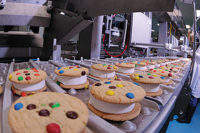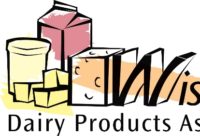IBM Research and international food giant Mars Inc. in January established the Consortium for Sequencing the Food Supply Chain. In a statement, they call it “a collaborative food safety platform that will leverage advances in genomics to further our understanding of what makes food safe.”
The consortium said it will conduct the largest-ever metagenomics study to categorize and understand micro-organisms and the factors that influence their activity in a normal, safe factory environment. This work could be extended into the larger context of the food supply chain from farm to fork and lead to new insights into how micro-organisms interact within a factory ecology and be better controlled by new data and science-driven practices.
Based in McLean, Va., Mars has net sales of more than $33 billion from six business segments (Petcare, Chocolate, Wrigley, Food, Drinks and Symbioscience). It makes ice cream novelties at a plant in Illinois. (See Dairy Foods, February 2012.)
As a first step, the consortium’s scientists will investigate the genetic fingerprints of living organisms such as bacteria, fungi or viruses and how they grow in different environments, including countertops, factories, and raw materials. This data will be used to further investigate how bacteria interact, which could result in completely new ways to view supply chain food safety management.
“The Consortium for Sequencing the Food Supply Chain has the potential to revolutionize food safety, providing a powerful tool to identify and address new threats on an unprecedented scale, enabling critical breakthroughs in global food safety,” said Dave Crean, vice president, Corporate Research and Development, Mars Inc.
“Genome sequencing serves as a new kind of microscope – one that uses data to peer deeply into our natural environment to uncover insights that were previously unknowable,” said Jeff Welser, vice president and lab director, IBM Research - Almaden. “By mining insights from genomic data, we’re seeking to understand how to identify, interpret and ultimately create healthy and protective microbial management systems within the food supply chain.”
Mars goes landfill-free
Also in January, the company said all 10 of its manufacturing facilities in its Mars Chocolate North America unit have been certified landfill-free. Since establishing its waste target in 2007, Mars Chocolate North America has driven an overall reduction of approximately 4,500 metric ton of waste. To achieve its goal, the organization focused on efficient operating processes, recycling programs for multiple waste streams, and partnerships with disposal vendors and local farm re-use programs.









